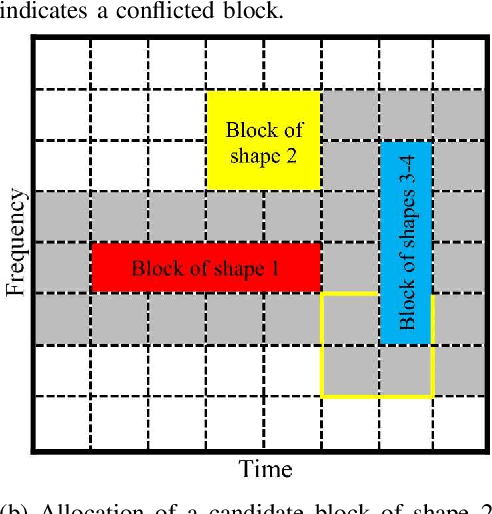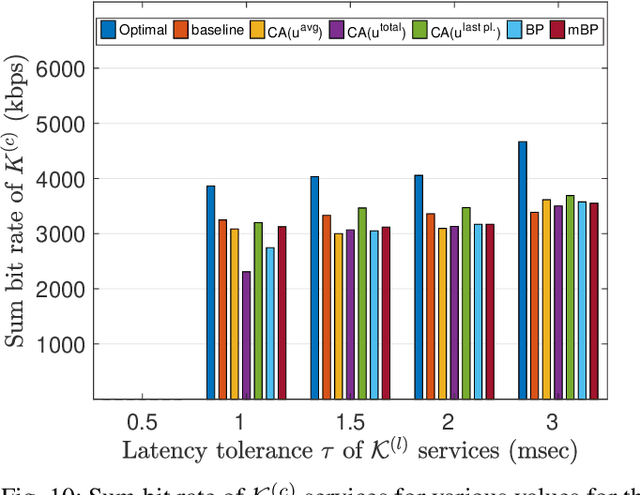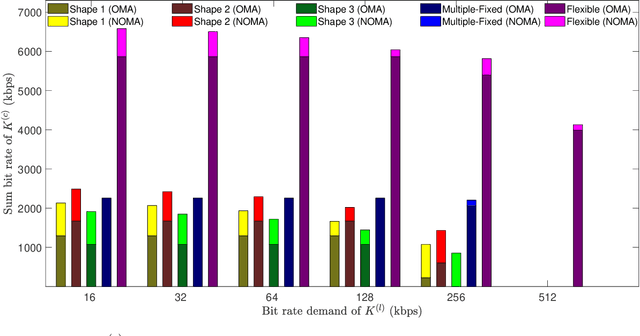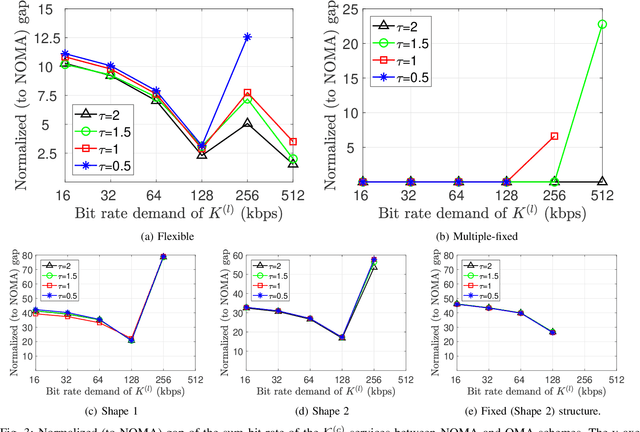Scheduling Optimization of Heterogeneous Services by Resolving Conflicts
Paper and Code
Mar 02, 2021



Fifth generation (5G) new radio introduced flexible numerology to provide the necessary flexibility for accommodating heterogeneous services. However, optimizing the scheduling of heterogeneous services with differing delay and throughput requirements over 5G new radio is a challenging task. In this paper, we investigate near optimal, low complexity scheduling of radio resources for ultra-reliable low-latency communications (URLLC) when coexisting with enhanced mobile broadband (eMBB) services. We demonstrate that maximizing the sum throughput of eMBB services while servicing URLLC users, is, in the long-term, equivalent to minimizing the number of URLLC placements in the time-frequency grid; this result stems from reducing the number of infeasible placements for eMBB, to which we refer to as "conflicts". To meet this new objective, we propose and investigate new conflict-aware heuristics; a family of "greedy" and a lightweight heuristic inspired by bin packing optimization, all of near optimal performance. Moreover, having shed light on the impact of conflict in layer-2 scheduling, non-orthogonal multiple access (NOMA) emerges as a competitive approach for conflict resolution, in addition to the well established increased spectral efficiency with respect to OMA. The superior performance of NOMA, thanks to alleviating conflicts,is showcased by extensive numerical results.
 Add to Chrome
Add to Chrome Add to Firefox
Add to Firefox Add to Edge
Add to Edge